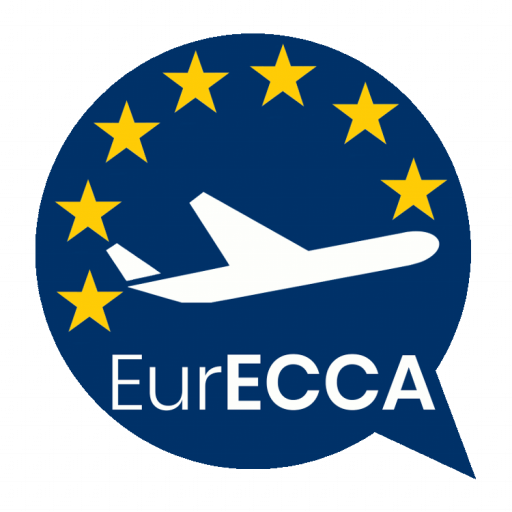EurECCA asked to speak at CAPSCA conference to help establish robust protocols for dealing with contagious disease on board following successful presentation at ECAC workshop
Following the eye-opening presentation on cabin crew’s vital role in effectively dealing with contagious diseases by two EurECCA board members Corinne Basarot of STAVLA in Spain and Annette Groeneveld of VNC in the Netherlands, at the recent ECAC workshop, they have now been requested to speak on the same topic at CAPSCA’s next conference.
Corinne Basarot and Annette Groeneveld spoke at the ECAC workshop on medical emergencies on board on 23 October in Dublin which gathered officials from governmental health departments, airport officials and health specialists from both IATA and CAPSCA.
Much attention was given to the protocols that were developed to cope with the spreading of contagious diseases such as SARS, bird flu and Ebola. While health officials, airports and health organisations like the WHO work together very closely on this issue, strangely and worryingly the role of cabin and cockpit crew in these protocols is minimal. Currently they are only asked to fulfill a basic legal requirement which says that the captain of the flight SHOULD report a suspicion of contagious diseases on board their aircraft.
Safety and Security
EurECCA’s speakers stressed that since the rise of commercial aviation cabin crew have been tasked with an ever increasing amount of responsibilities, many of which are invisible or even maybe taken for granted. This primary role is first and foremost the safety and security of passengers. While cabin crew also help accommodate people in their seats, help them with their luggage, serve food and beverages during the flight, safety remains the key priority. Even the welcoming smiles of the flight attendants as passengers board the aircraft are also part of ensuring safety, as they are actually assessing people for abnormal behaviour, fitness to fly and possible use of alcohol or drugs. The decision to spend hours in an aluminum tube with the passengers boarding is made then by them.
Need for more robust protocols – how cabin crew can help
One of the important goals of EurECCA is to stress the importance of well trained and professional cabin crew. That fact that all protocols lack a clear procedure on contagious diseases for cabin crew and that two way communication with and information to the crew is largely overlooked, is unbelievable. All protocols start at the airport of entry, whereas for cabin crew the responsibilities start even before boarding at the airport of departure. How big a problem a national airport and the health authorities have when a flight with a suspicion of contagious disease lands at their airport depends largely on how the emergency has been handled on board by the cabin crew. It is time to work this into the protocols.
High expectations for cabin crew standards
EurECCA calls for the regulation and standardisation of the specifications of the profession of cabin crew. This would ensure that the requirements set for cabin crew are met by all airlines, and not only by the big network airlines, thus protecting passengers from safety and security incidents, unruly behaviour by fellow passengers as well as medical emergencies.
What it takes to meet the expectations of passengers and airlines was explained by Corinne, not only cabin crew with Iberia and also Health and Safety expert for STAVLA and EurECCA. She guided the attendees of the workshop though the legal framework, procedures, equipment and challenges that cabin crew faces when confronted with a medical emergency on board. The presentation was very well received and opened the eyes of the participants to the responsibilities of cabin crew in general and specifically those regarding to medical emergencies.
Explanation of acronyms:
- CAPSCA – Collaborative Arrangement for the Prevention and Management of Civil Health Events in Civil Aviation – Website
- ECAC – European Civil Aviation Conference – Website
- EurECCA – European Cabin Crew Association – Website
- IATA – IATA (International Air Transport Association – Website
- STAVLA – Sindicato de Tripulantes Auxiliares de Vuelo de Líneas Aéreas – Website
- VNC – Vereniging Nederlands Cabinepersoneel – Website
- WHO – Word Health Organization – Website
EurECCA represents, protects and develops the rights and needs of cabin crew all over Europe

